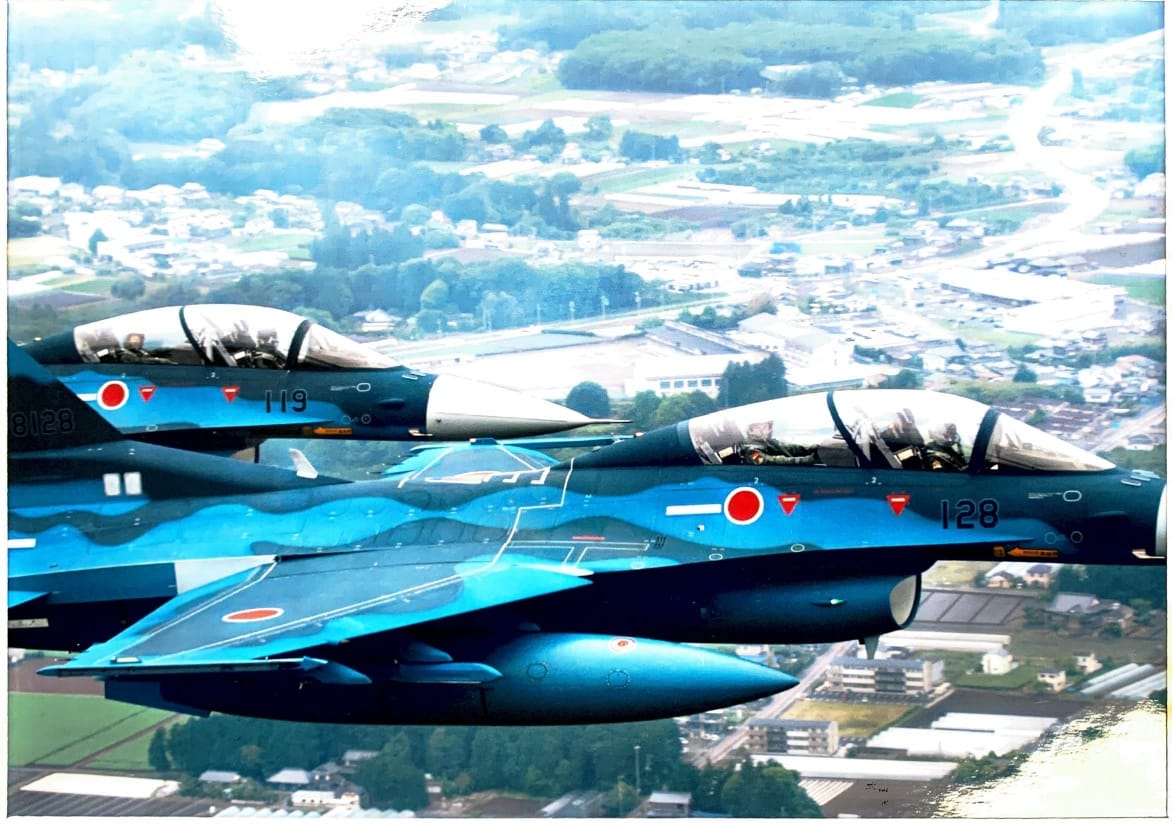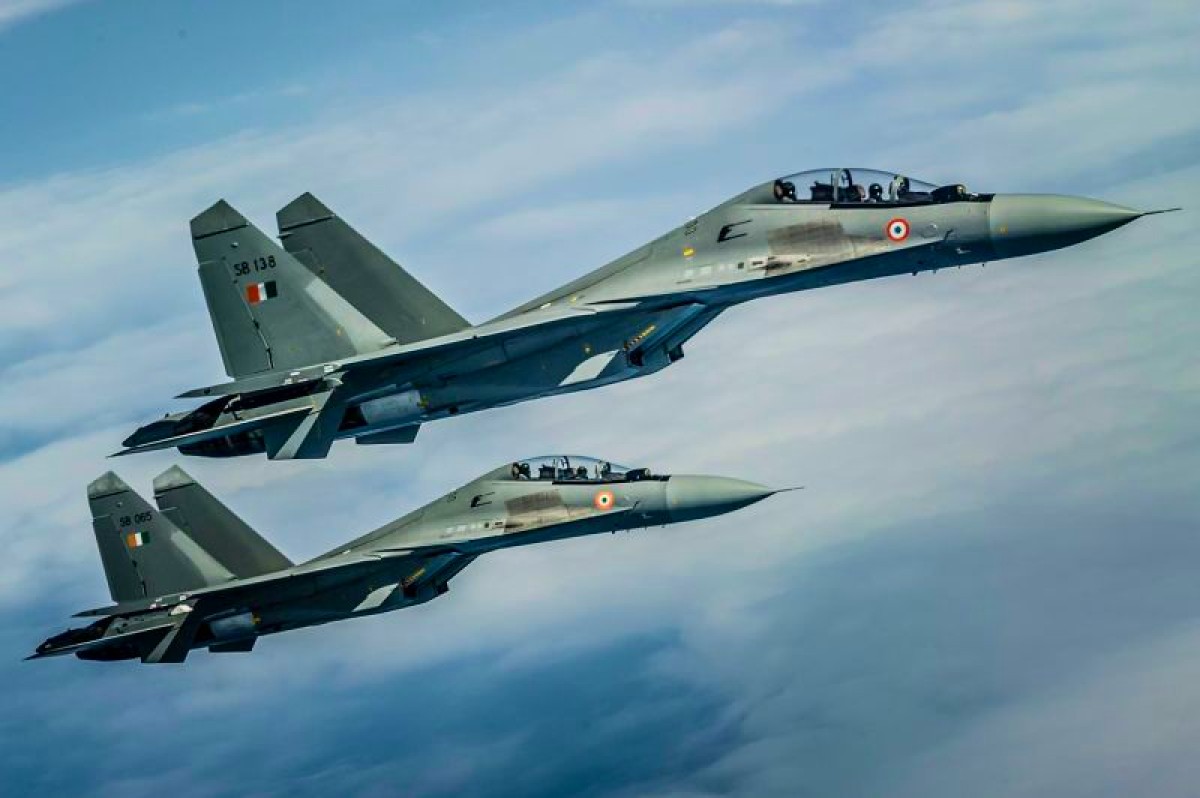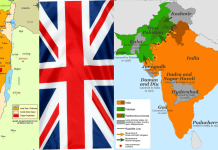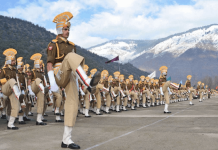Japan is leaving no stone unturned to boost the capabilities of its Air Force, which is providing them with an excellent opportunity to train against the best fighter jets, including Su-30MKI, Rafale, F-35, and Eurofighter Typhoon, amid growing threats from China.
Germany, Spain ‘Battle’ For Indian Navy’s Massive API Submarine Deal; Madrid Eats Into Berlin’s Advantage
The Japan Air Self-Defense Force (JASDF) and the French Air and Space Force (FASF) will conduct joint training from July 19 to July 20, 2024. The exercise will take place at Hyakuri Air Base and the surrounding airspace.
The JASDF will contribute two F-2 fighter jets from the 7th Air Wing, based at Hyakuri Air Base. The FASF will participate with four Rafale fighter jets, three A400M transport aircraft, and three A330MRTT aerial refueling aircraft.
Approximately 260 personnel from the French side will be involved in the tactical training exercises. This collaboration builds upon previous joint efforts, including last year’s historic joint fighter jet drills, which marked the first-ever joint exercises between Japan and France.
During the previous exercise, three F-15 and two F-2 fighter jets from the Japan Air Self-Defense Force and two Rafale fighters from the French Air and Space Force conducted training in the southwestern Japan skies near Nyutabaru Air Base in Miyazaki Prefecture.

These initiatives are part of broader efforts to fortify regional security in response to heightened geopolitical dynamics, particularly China’s expanding military presence in the Indo-Pacific.
According to the Japanese military, the upcoming exercise aims to enhance the tactical skills of the Japan Air Self-Defense Force, promote mutual understanding, and deepen defense cooperation in support of a “free and open Indo-Pacific.”
Such joint aerial drills not only promote interoperability among allied forces but also ensure swift and effective responses to emerging security threats.
The training regimen will encompass a spectrum of operational scenarios, including air combat maneuvers, interception protocols, and mission planning exercises under varying conditions.
These simulations are crucial in preparing JASDF pilots and personnel to effectively address potential threats, thereby bolstering regional stability and security.
Japanese Air Force Increases Drills With Allies
The upcoming exercise with the French Air Force exemplifies the Japanese Air Force’s increased defense collaborations with allies, highlighting its strategic response to regional security challenges posed by China’s assertive military actions.
Tokyo has witnessed a notable uptick in the number of Chinese military aircraft approaching its airspace in recent years, prompting frequent air force scrambles.
According to Japan’s Ministry of Defense’s Joint Staff Office, Japanese defense forces conducted 555 fighter jet scrambles in the last nine months of 2023, with 98 percent of these responses aimed at Chinese and Russian aircraft.
The strategic landscape has been further complicated by the specter of potential conflict over Taiwan. It is a scenario that has spurred Japan to bolster its defense partnerships with like-minded nations.
This proactive stance is exemplified by upcoming joint aerial exercises with the French Air Force. In addition to the bilateral drills with France, Japan will also engage in joint aerial exercises with German and Spanish Eurofighter Typhoons next month.
Germany is expected to send 30 aircraft to Japan, including eight Eurofighter Typhoons.
F-15s, Eurofighters To Battle During ‘Nippon Skies’ As Japan, Germany To Hold 1st-Ever Bilateral Drills
These exercises are part of the Japanese Air Force’s broader strategy to enhance its operational readiness and interoperability with international allies.
Last year, Japan carried out its first-ever joint fighter aircraft exercise with the Indian Air Force. The exercise included IAF Sukhoi Su-30s ‘battling’ Japan’s F-2 and F-15 fighters.
The Su-30s’ participation, which is also flown by China and Russia near disputed territories, provided valuable insights for Japanese pilots into potential adversaries’ capabilities and tactics.
The Chinese Air Force’s substantial fleet of S-35s, Su-30s, and other similar warplanes poses a significant concern for Japan’s defense establishment. Instances of these aircraft operating near Japanese airspace have heightened the urgency for Japanese pilots to understand and prepare for potential encounters.
The training exercises with Indian Su-30s have offered Japanese fighter pilots crucial knowledge about the Su-30’s fundamental capabilities, including its maneuverability, cruising range, fuel consumption, and maintenance turnaround times. This information could prove invaluable for the Japanese military in a potential conflict with China.

Moreover, last year, Japan also showcased its commitment to regional security by deploying its advanced F-35 stealth fighters overseas for joint exercises in northern Australia.
That marked the first overseas deployment of Japan’s fifth-generation aircraft, underscoring Tokyo’s determination to bolster its military capabilities and cooperation with allies.
Meanwhile, the Italian aircraft carrier Cavour will make a port call in Japan in August and participate in military drills with Japan. Defense Minister Guido Crosetto announced the deployment of the 27,100-ton Italian Navy flagship.
Crosetto also confirmed that the carrier’s complement of up to 10 F-35B stealth fighters will take place in the drills “to ensure stability in the Indo-Pacific.”
- Contact the author at ashishmichel(at)gmail.com
- Follow EurAsian Times on Google News




